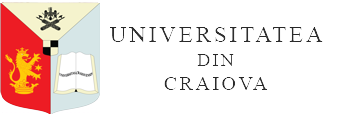PRAGMATIC REASONS FOR SOCIAL EDUCATION IN THE REPUBLIC OF MOLDOVA
DOI:
https://doi.org/10.52846/afucv.v1i55.98Keywords:
social education, social context, pragmatic reasons, effective actionsAbstract
In this study we aimed to analyze the institutional context and the ways in which, after the 1990s, social education takes place in the Republic of Moldova. In the post-Soviet period, education in the Republic of Moldova went through continuous metamorphoses, implicitly in the field of social education. In this research we highlight the fact that the political orientations that have manifested themselves in these three decades have also influenced the educational policies in the country. We mention that the humanities subjects taught in school have undergone most of the thematic reconfigurations. Thus, in primary, secondary and high school education in all these years students studied several subjects at the beginning of the post-Soviet period - Us and the law, after 2001 - Civic education, and starting with 2018 - Education for society. All these disciplines had and are meant to train current and future citizens of the Republic of Moldova. In order to identify the state of affairs regarding the teaching of social education in education in the Republic of Moldova - we conducted a qualitative research on the disciplines of Personal Development and Education for Society, taught to high school students. In the qualitative research, conducted between April and May 2020, we identified the topics, topics of major interest, specific to this age, which will be found in textbooks for these two disciplines, as well as identifying effective ways to organize activities in the disciplines of Personal Development and Education for Society.
A determining factor, which we highlight in our study, is the fact that the pragmatic reasons that must be taken into account in teaching social education in educational institutions are of major importance. Effective actions, so important for the social context, are determined in the most direct sense by the role of rationality. And authentic rationality, from a pragmatic point of view, is developed through the dynamics of philosophical reflection. In educational institutions in the Republic of Moldova, philosophical reflection could be developed both in the context of studying ethics, logic and philosophy for children, and in other humanities studied by students. These disciplines are only to be approved by the Ministry of Education, Culture and Research of the Republic of Moldova. Critical thinking could contribute to the development of pragmatic reason, in that they can support effective, authentic actions and options, both at the individual and social level.


